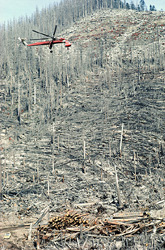Promoting biorefineries in Europe
The use of biomass is actually an old concept since prior to the Industrial Revolution, wood burning was the primary source of energy for heating, cooking and so on. Nowadays, faced with the environmental burden of fossil fuels, modern society is seeking to return to more sustainable energy sources like biomass. the European Union's enlargement policy aims to establish collaboration between EU Member States and Newly Associated States The concept of biorefineries provided the context for such collaboration. Biorefineries take biomass as an input and generate biofuels, power and other by-products for exploitation. funded by the GROWTH Programme, seven organisations combined their expertise to decide best how to promote the take-up of biorefineries across Europe. Depending on the types (wood and agricultural products, solid waste, etc.) and amounts of biomass available, biorefineries can be optimised in order to generate the greatest amount of value (expressed in revenue or energy units). To make this step easier for the countries and regions looking to implement biorefineries, the consortium has foreseen the creation of a Virtual Model of Biorefinery Enterprise (VBE). The Central Mining Institute of Poland (GIG) will lead this task and also customise the VBE for the Baltic Rim test case. other activities to be undertaken by GIG and its partners over the next 3-year horizon include the investigation into the creation of flexible, modular biorefineries. Selection from the various types of conversion mechanisms (e.g. pyrolysis, bacterial decay, fermentation, etc.) must be made based on the constraints of each region. Central to the consortium's efforts will be the demonstration of a successful biorefinery in the Baltic region. Finally, a possible synergy with the promising hydrogen economy will be explored as well as the role that Europe's Common Agricultural Policy (CAP) can play in the encouragement of biorefineries. The hope is that bringing together qualified scientists from both within and without Europe can help push forward the concept of biorefineries, particularly in rural regions where the potential for positive impact is greatest.



